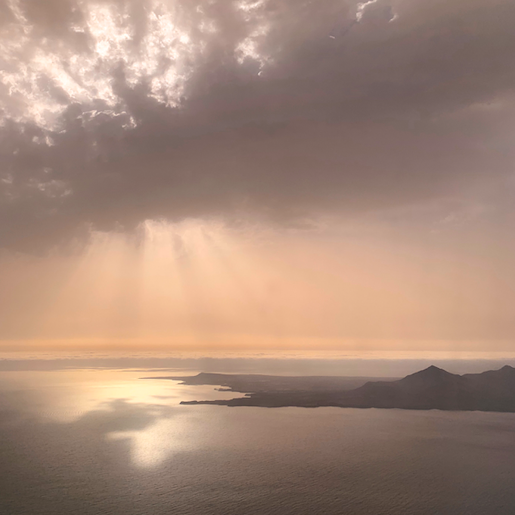Our citizenship is in heaven
NOTE: Our Advent devotional for 2020 is now available, and it was such a joy to write and compile Our Christmas Stories: 26 Reflections to Enrich Your Christmas Season.
More than a few of you will find your stories in this book!
And, while each story differs—some may even provide you with new Christmas traditions—they all ultimately celebrate the “good news of great joy” of Jesus’ birth (Luke 2:10). Request your copy of Our Christmas Stories today!
The original title to this blog post was, “Our citizenship is in heaven, but not yet.”
I wanted to encourage all my readers to use their right to choose, to do what is right and vote. But, I read Paul’s words, and theology got in the way of my title and my plan for this blog post.
Paul wrote in the present tense, saying we are actually citizens of heaven right now.
Theology often redirects my ideas in order to teach God’s.
God’s people have always been called to be holy, to be set apart in this world. We should always feel like our values don’t line up with unbelievers. The only place we will fully belong is heaven.
But, we are also citizens of this world.
What are our choices until we get to heaven?
The choice to be separate
A lot of Christians choose to separate themselves completely from the culture. There are days when that seems like the best option to me too.
I enjoyed visiting the Amish country a couple of years ago. The Amish people came to America to escape religious persecution and established themselves in Pennsylvania. They work hard to live “set apart” from the American culture.
There seemed to be a peacefulness among the people I saw in the Amish communities. I have to admit that I envied their ability to avoid the rest of the culture.
But, in the end, I thought, “If all of us lived as the Amish did, how many Americans would ever come to know Jesus?” The Amish aren’t known for their evangelism; they are known for their “separateness.”
How should we reconcile the choice to be holy with our command to go and make disciples?
The choice to vote
I got sidetracked reading articles about Edmund Burke. He is the man who wrote, “The only thing necessary for the triumph of evil is for good men to do nothing.”
The politics of England during Burke’s day would make today’s politics seem tame.
If you need to feel better about today’s evening news, just study some history!
Our democracy was formed by people of opposing views. There was a lot of shouting, scheming, and angst in our country during its formative years. Edmund Burke was surrounded by the shouting, scheming, and angst of England during those same years.
Our political freedom, our government, and our Constitution were born of that angst.
Has the angst of today’s politics led you to consider “doing nothing” as a possible choice?
We have the right to vote.
Isn’t it right to vote?
Don’t choose a person; choose a purpose
Jim and I love history and spend a lot of our vacations walking through museums, historical sites, and presidential libraries. There have been a lot of presidents of this country that I might not have voted for, but I see their strengths nonetheless.
Thomas Jefferson was an amazing leader and a brilliant mind. He did a lot to create the government that has sustained the American culture until today. But, if Thomas Jefferson were running for president today, Christians would be shouting their fears about him and his beliefs.
The vote for a president should not be about a personality. It should be about a purpose. I might not have voted for Thomas Jefferson. Our country would be very different if he had not been our leader.
Our government is structured to allow for personalities but functions because of a plan and a purpose. There are two personalities competing for the role of president. But our vote isn’t about personality. It needs to be about the plans and the purpose.
My confidence is in the wisdom of Solomon. He was the most successful king Israel ever had. But many of his choices led to a civil war that split the nation of Israel into the Northern Kingdom of Israel and the Southern Kingdom of Judah. King Solomon wrote: “Many are the plans in the mind of a man, but it is the purpose of the LORD that will stand” (Proverbs 19:21).
We don’t vote for a personality. We vote our values.
What does God want for this culture?
It will be accomplished by God’s grace and redemption, regardless of any one person.
The purpose of the Lord will stand.
We are citizens of heaven with a purpose for earth
I want to close with Paul’s words, God’s word, to the early Christians living in the culture of Philippi and to every Christian in America. There was very little in that first-century culture that God would approve of. I feel much the same way about our culture today.
“For many, of whom I have often told you and now tell you even with tears, walk as enemies of the cross of Christ. Their end is destruction, their god is their belly, and they glory in their shame, with minds set on earthly things. But our citizenship is in heaven, and from it we await a Savior, the Lord Jesus Christ, who will transform our lowly body to be like his glorious body, by the power that enables him even to subject all things to himself.” —Philippians 3:18–21
Christians should live with the hope of heaven and the purpose and plan of God for earth.
We aren’t called to withdraw from others; we are called to evangelize our culture.
Our citizenship is in heaven, but God has a purpose for us on earth.
Do something: vote
Vote for the person you believe advances God’s plan for our culture.
Whomever you vote for will be imperfect. That has always been true. But never trust politicians to do the work of the church. Evangelism is our job, not theirs.
We are citizens of heaven, but we have a job to do on earth.
Maybe the reverse of Edmund Burke’s quote could be: “The one thing necessary for good to triumph over evil is for God’s people to do something.”
We are citizens of heaven, called to serve God’s purpose on earth.
Let’s all vote for that.
P.S. Have you signed up for my bible study, Foundations of Faith, yet? It’s not too late, we just released lesson 7!
Visit https://www.janetdenisonbiblestudy.com/ to sign up for this study, if you’ve already signed up you can login and access the newest video too.


